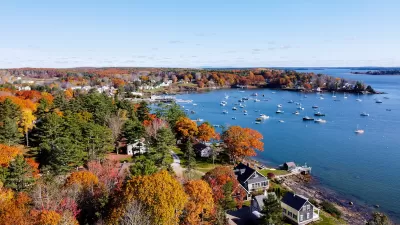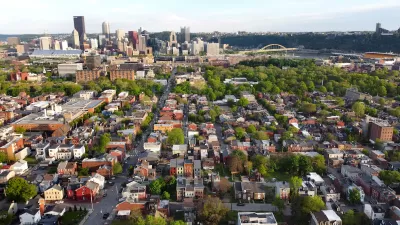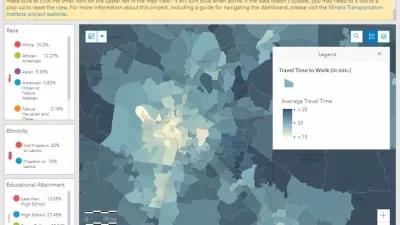Emily Badger delivers a lesson in how to navigate the linguistic minefield awaiting anyone who endeavors to talk about cities with those who don't live in one.
With seemingly innocuous, but loaded, terms like "urban", "smart growth", or "transit-oriented development" posing a potential minefield of antagonism towards ignorant planners, Badger seeks advice from those in the field as to what certain terms connote to those outside of cities, and strategies for workarounds.
The first lesson, delivered by Chuck Marohn, the executive director of the non-profit Strong Towns, is to recognize the danger inherent in using certain terms with condescending overtones such as "smart growth" or "auto-oriented". "That antagonistic language keeps us from having this broader dialogue," Marohn says. "It allows us to remain polarized round issues that at their central core are universal. We all want to live in places that we like. We all want to feel safe. We all want access to food, shelter, recreation, entertainment. These are things that are essentially universal."
The next lesson is to find a common language to address what are often common concerns between small town and urban residents. To Mahon this common language is "the language of economics, of debt and prosperity and gas price."
According to Badger, "It's not that cities need 'smart growth' and rural towns are destined to die in the mass exodus from dumb farms to sardine-like urban apartments. Rather, everyone needs to figure out how to rebuild communities that aren't caught in the trap of endlessly expanding development – not because this pattern is morally or environmentally problematic, but because it's financially so."
FULL STORY: How To Talk About Cities Without Ticking Off Folks Who Don't Live There

Alabama: Trump Terminates Settlements for Black Communities Harmed By Raw Sewage
Trump deemed the landmark civil rights agreement “illegal DEI and environmental justice policy.”

Study: Maui’s Plan to Convert Vacation Rentals to Long-Term Housing Could Cause Nearly $1 Billion Economic Loss
The plan would reduce visitor accommodation by 25% resulting in 1,900 jobs lost.

Planetizen Federal Action Tracker
A weekly monitor of how Trump’s orders and actions are impacting planners and planning in America.

Waymo Gets Permission to Map SF’s Market Street
If allowed to operate on the traffic-restricted street, Waymo’s autonomous taxis would have a leg up over ride-hailing competitors — and counter the city’s efforts to grow bike and pedestrian on the thoroughfare.

Parklet Symposium Highlights the Success of Shared Spaces
Parklets got a boost during the Covid-19 pandemic, when the concept was translated to outdoor dining programs that offered restaurants a lifeline during the shutdown.

Federal Homelessness Agency Places Entire Staff on Leave
The U.S. Interagency Council on Homelessness is the only federal agency dedicated to preventing and ending homelessness.
Urban Design for Planners 1: Software Tools
This six-course series explores essential urban design concepts using open source software and equips planners with the tools they need to participate fully in the urban design process.
Planning for Universal Design
Learn the tools for implementing Universal Design in planning regulations.
Caltrans
Smith Gee Studio
Institute for Housing and Urban Development Studies (IHS)
City of Grandview
Harvard GSD Executive Education
Toledo-Lucas County Plan Commissions
Salt Lake City
NYU Wagner Graduate School of Public Service





























